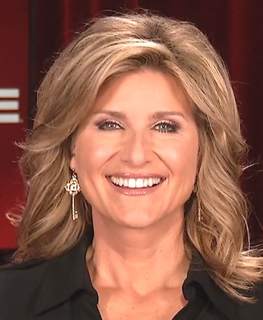A Quote by Emily Thornberry
We must apply the same standards to countries such as Saudi Arabia, Israel and Egypt that we apply to Iran, Russia and Syria.
Related Quotes
I'm very careful not to isolate Israel on this but to make this part of a transformed foreign policy where we apply the same standards across the board. So it's not just Israel. It's also Saudi Arabia, it's also Egypt. It's where there are massive and systemic violations of human rights and international law.
Israel's discourse with the United States on the subject of Iran's nuclear project is more significant, and more fraught, than it is with Europe. The U.S. has made efforts to stiffen sanctions against Iran and to mobilize countries like Russia and China to apply sanctions in exchange for substantial American concessions.
If I look at the really important questions in [Middle East] region, I see Iran, where there is a strong desire for a freer society and where people are repressed by a small group of ayatollahs. I see Syria, where we can see a similar desire of the people to be free. These two countries fund Hezbollah and other terrorist organizations and are hurting our efforts in Afghanistan and have been extremely harmful in Iraq. Then I also see large, important countries such as Egypt and Saudi Arabia.
If we want to defeat Islamic State, we first have to arrive at a cease-fire agreement in Syria. Once that has been achieved, an anti-IS coalition can be assembled, including Russia, Saudi Arabia and Iran. That, however, will be significantly more difficult in the wake of Turkey's downing of the Russian plane.
I think no country is going to be immune from the Arab awakening because the Arab awakening is driven by deep human longing for dignity, for justice and for freedom. I think that applies to young people in Saudi Arabia as much as to young people in Egypt, Tunisia, or Yemen, or Libya, or Syria. If I were in Saudi Arabia, I would be getting ahead of this and looking for ways to appreciate those aspirations and align my country with them.
I fully share the Congress's objective of promoting nonproliferation and combating Iran's efforts to acquire weapons of mass destruction (WMD) and missile delivery systems. This issue remains at the top of the agenda with Russia as well as with other countries whose companies may be providing such assistance to Iran. In the case of Russian entities' cooperation with Iran, we have imposed penalties ten times in the past and stand ready to apply them again whenever necessary.
New security architecture is being laid down in the Northern Middle East, Lebanon, Syria, Iraq, in which pro-Iranian governments are consolidating their grip on the territory and they're backed by Russia, to a large degree. And this has caused great grief and consternation in Saudi Arabia and amongst many of the United States' allies, Israel, the Gulf countries, Turkey, because they see this new architecture of security and Iranian influence and Russian influence as something that's very bad for them.
































